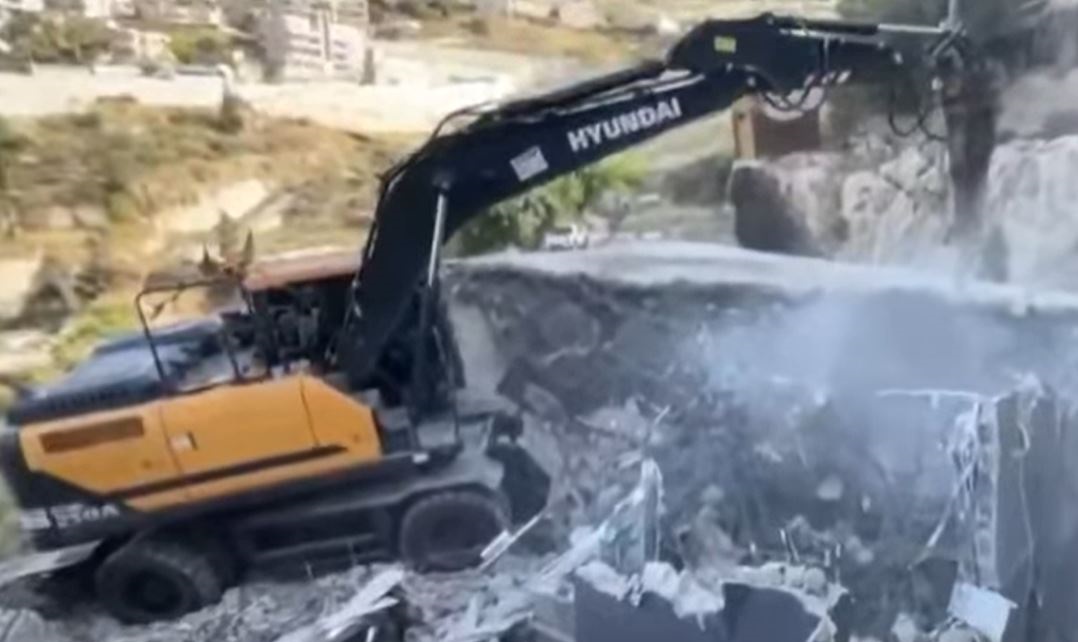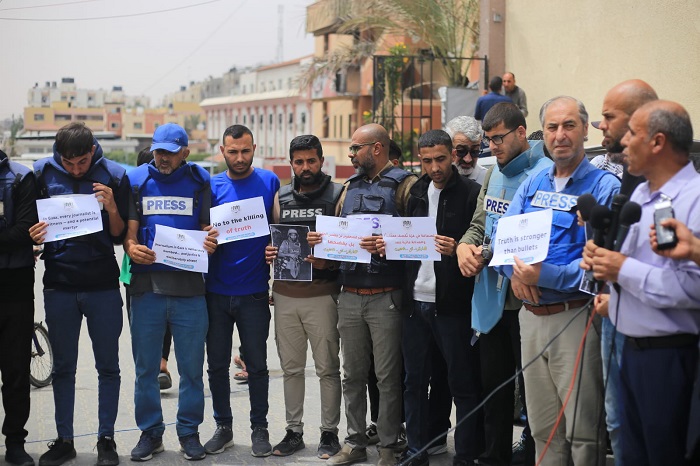HEBRON,
July 26, 2015 (WAFA) – Dozens of Jewish settlers late Friday attempted to
attack Sheikh of the Ibrahimi mosque in Hebron during the night call for
prayers, according to an official.
Head
of Hebron Waqf, Ismail Abu Halawa, said that dozens of settlers attempted to
attack Sheikh Motasim Sdr, while he was calling for the night prayers, when he
heard the thud of settlers who were planning to attack him.
A
large Israeli police and army present at the scene succeeded in securing his
exit outside the mosque before being attacked by settlers.
To
be noted, Settlers have intensified their presence in the mosque to mark the
Jewish holiday of Tisha B’Av.
Earlier
today, Dozens
of Muslim worshipers Sunday were injured, while many suffocated by tear gas
during clashes that erupted with Israeli police at Jerusalem’s al-Aqsa Mosque
compound, after groups of Jewish broke into the Islamic holy site to mark the
aforementioned holiday.
Abu
Halawa expressed grave concern over the attempted attack, stressing that
efforts with relevant sides are underway to insure the provision of the
necessary protection to all Muslim and Christian holy sites against settlers’
attacks.
Al-Ibrahimi
Mosque is located in the old city of Hebron, few hundred meters away from the
part of the city illegally occupied by around 400 extremist settlers, who are
protected by about 1,500 Israeli soldiers.
Since
1967, al-Ibrahimi Mosque, like all other Muslim holy sites in Palestine, became
a target for the Israeli occupying forces and Zionist settlers, reported the Hebron
Rehabilitation Committee.
In
1994, Israel divided al-Ibrahimi Mosque between Muslims and Jews, after an
Israeli settler gunned down 30 Palestinians during dawn prayer.
Baruch
Goldstein, an extremist settler from the illegal settlement of ‘Kiryat Arba’
settlement, who holds US and Israeli citizenship, opened machine-gun fire at
Muslim worshippers during prayer. He killed 29 people and injured 135. On the
same day outside the Mosque, the Israeli army opened fire towards fearful and
panicky worshippers and killed at least ten civilians.
Following
the incident, al-Ibrahimi Mosque was converted into a military post and later
divided into two parts, one for Muslims and another for Jews. Thus the Mosque
became a point of conflict and constant tension that has marred its sanctity.
Nowadays,
Israel controls Palestinians’ access to the Mosque, prevents many from praying
there on a regular basis and frequently bans the call for prayer under the
pretext of disturbing the settlers.
The
control is not only restricted to prayer at the Mosque, but also calls for
prayers through speakers. In January 2015 alone, the call for prayer was banned
51 times.
The
Hebron Awqaf Directorate said that the policy of banning Muslims’ call for
prayer is aimed at tightening the noose on Palestinians and stopping them from
praying in the Mosque, subsequently driven them away from their city.
T.R.











